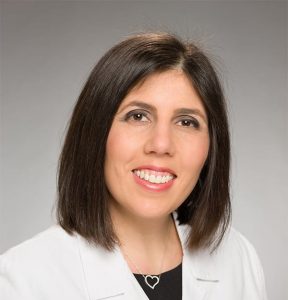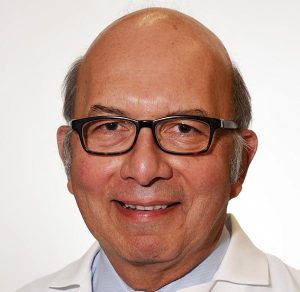
Increased Survival in Colorectal Cancer
Increased Survival in Colorectal Cancer: RCCA Oncologists Tell How Doctors &Patients Are Driving the Trend The colorectal cancer death rate has dropped by more than 30%
HIPAA Alert: Potential Data Breach Learn More
Questions on Oncology, Hematology and/or Infusion Clinical Services due to COVID-19 Crisis – CALL 833-698-1623
Important Information for Our Patients Regarding the Coronavirus.
RCCA Providing Area Cancer Patients with Access to Care During Coronavirus Outbreak
RCCA Offering Patients Virtual Visits During Coronavirus Pandemic

Cancer is the second-leading cause of death for all Americans, but it takes a particularly high toll on people of African and Caribbean ancestry.1 [Saka 2025, p 113, Table 1] As one of the nation’s largest networks of oncology specialists, Regional Cancer Care Associates (RCCA) delivers cancer screening and testing at over 20 locations near you in New Jersey, Connecticut, Massachusetts, and the Washington, D.C., area. RCCA is committed to reducing race-based disparities in cancer care and outcomes, including by providing education on the specific risks faced by Black people and ways to reduce those risks.
Take the following 8-question quiz to test your knowledge of how cancer affects members of the Black community. Then read on for advice on how to protect your health from RCCA oncologists Rachel Levenbach, MD, and Frederick P. Smith, MD.
Answer: C. The latest statistics from the American Cancer Society show that Black women actually are slightly less likely than White women to be diagnosed with breast cancer. For the years 2017 to 2021, the annual rate of new cases was 131.3 per 100,000 people for Black women versus 137.9 per 100,000 for White women, a difference of about 5%.1 [Saka 2025, p 115, Table 2] However, the breast cancer death rate from 2018 to 2022 was 26.8 per 100,000 people for Black women, compared with 19.4 per 100,000 for White women, which translates into a 38% higher mortality rate for Black women.1 [Saka 2025, p 116, Table 3]
Answer: A. The American Cancer Society (ACS) recommends that prostate cancer screening should begin at age 50 for men at average risk of prostate cancer who are expected to live at least another 10 years. However, the non-profit organization recommends that screening begin at age 45 for men at high risk of developing prostate cancer, and it includes African-American men and men of any race or ethnicity who have a first-degree relative, such as a father or brother, who was diagnosed with prostate cancer before age 65, in the high-risk group.2 [American Cancer Society Recommendations for Prostate Cancer Early Detection. November 22, 2023. Available at https://www.cancer.org/cancer/types/prostate-cancer/detection-diagnosis-staging/acs-recommendations.html.] The ACS recommendation for earlier screening in Black men reflects the facts that African Americans tend to develop prostate cancer at a younger age than White men and tend to have more-aggressive prostate cancer than men from other racial and ethnic groups.3 [DeSantis 2019, p 226, col 2, para 1, lines 4-6 and p 227, col 2, para 1, lines 2-7.]
Answer: C. Lung cancer is the leading cancer killer among Black men and women in the United States and among all people in the country. The American Cancer Society estimates that 7,310 Black men and 6,290 Black women will lose their lives to the disease in 2025.1 [Saka 2025, p 114, Figure 1]
Answer: B. Myeloma, also known as multiple myeloma, is a cancer that develops in plasma cells, a type of white blood cell, in the bone marrow. The rate of myeloma diagnoses in Black men from 2017 to 2021 was 18.1 per 100,000 people, versus 8.3 per 100,000 for White men. Similarly, the rate of diagnoses for Black women during that period was 13.7 per 100,000, compared to 5.2 per 100,000 for White women.1 [Saka 2025, p 115, Table 2] Fortunately, the outlook for treating myeloma has improved significantly in recent years. While it remains a very serious disease, one that will claim the lives of an estimated 12,030 Americans in 2025,4 [Siegel 2025, p 4, Table 1] the opening years of this century have seen a dramatic expansion in the numbers and types of therapies approved by the Food and Drug Administration to treat myeloma.5 [International Myeloma Foundation. Multiple Myeloma Medications. Available at https://www.myeloma.org/multiple-myeloma-drugs.]
Answer: D. All three cancers listed above have a mortality rate among Black people that is twice that of White people, as detailed in the table below.1 [Saka 2025, p 116, Table 3.]
Cancer death rates per 100,000 people, 2018-20221 | ||||||
Cancer | Black Males | White | Difference | Black | White | Difference |
Prostate | 37.2 | 18.1 | 19.1 | N.A. | N.A. | N.A. |
Stomach | 6.6 | 2.8 | 3.8 | 3.3 | 1.4 | 1.9 |
Uterine | N.A. | N.A. | N.A. | 9.5 | 4.7 | 4.8 |
N.A., not applicable.
Answer: B. While skin cancers, including melanoma, are more common in people with fair or light skin, anyone can get melanoma.6 Acral lentiginous melanoma is the most common form of melanoma in Black people. It tends to occur on the palms of the hands, the soles of the feet, and on fingers, toes, and nail beds.6 [National Cancer Institute. Skin Cancer in People with Darker Skin. November 12, 2024. Available at https://www.cancer.gov/types/skin/skin-cancer-in-black-or-brown-skin.] It is important for all people, regardless of their skin tone, to pay attention to new moles or other skin lesions; existing moles that grow or change shape or color; and skin sores that don’t heal, and to see a physician promptly if they note one of those conditions or other concerning findings.
Answer: D. Researchers exploring racial disparities in cancer outcomes say that a variety of factors are to blame, including inequalities in the social determinants of health, such as insurance coverage, and a historical and ongoing under-representation of Black people in clinical trials evaluating cancer therapies.1 [Saka 2025, p 111, Abstract, lines 20-25.] Additionally, with certain cancers, genetic profiles seen more often in people of African or Caribbean ancestry than in other racial or ethnic groups may contribute to an increased incidence of the cancer or in development of more-aggressive forms of the cancer. This dynamic has been documented in prostate cancer and is being investigated in other cancers.7,8 [Chen 2023, p 18, col 2, para 1, lines 1-4 and Abstract. Design, Setting and Participation. Lines 1-2. National Cancer Institute. Gene variants and breast cancer risk in Black women. https://www.nih.gov/news-events/nih-research-matters/gene-variants-breast-cancer-risk-black-women]
Answer: D. To close the quiz on a positive note, overall cancer mortality among Black men declined by 49% from 1991 to 2022, a much steeper reduction than the 36% decline in White men. During the same period, the cancer mortality rate fell by 33% in Black women and by 26% in White women.1 [Sako 2025, p 114, col 2, para 2, lines 12-14]
Dr. Rachel Levenbach, a board-certified medical oncologist and hematologist who practices at RCCA’s Moorestown, NJ, offices, says, “This quiz highlights many areas where further progress is needed in improving outcomes for Black people with cancer. At the same time, the encouraging answer to the last question – on the sharp decline in cancer mortality among Black men and women – shows that we are making headway. Much of the decline in the cancer death rate that we’re seeing in all people can be attributed to the development of new, highly effective therapies. At RCCA, we’re proud to offer all of our patients access to these treatments, to sophisticated diagnostics, and to clinical trials, in the community setting. Our ability to draw on the latest targeted therapies, immunotherapies, enhanced chemotherapy regimens, and other treatments enables us to develop highly individualized treatment plans that we provide to people in welcoming offices conveniently located close to our patients’ homes.”

The cancer specialist adds, “The significant drop in the cancer mortality rate for Black people also reflects people taking a proactive approach to protecting their health. For example, researchers have identified that falling rates of lung cancer diagnoses and deaths in Black people are driven in large part by a decline in smoking.1 [Saka 2025, p 123, paras 1 and 2] In addition to not smoking, all people can reduce their risk for developing cancer by trying to maintain a healthy weight, being physically active, avoiding or limiting alcohol, and following a diet that emphasizes plant-based foods while limiting and avoiding red meat and, particularly, processed meat.”
Dr. Frederick P. Smith, a board-certified medical oncologist who practices at RCCA’s Chevy Chase, office, notes that beyond adopting healthy lifestyle behaviors, staying on schedule with various cancer screenings is a critical step in protecting health. “This is an area where there has been significant progress in reducing race-based disparities,” he notes. “For example, the latest statistics from the American Cancer Society show that among women ages 40 to 74 years, 80% of Black women have had a mammogram within the past two years, a proportion modestly higher than the 72% figure for White women. The percentages of women aged 25 to 65 years who have had cervical cancer screenings are similar, at 76% for Black women and 80% for White women. Meanwhile, among men and women aged 50 and older, the percentages of people who have had colorectal cancer screening are comparable, ranging between 70% and 72% for men and women and Black people and White people.”1 [Saka 2025, p 130, Table 8]
The cancer specialist adds, however, that Black men continue to lag their White peers in terms of having a simple blood test that can identify potential prostate cancer by measuring levels of a protein known as prostate-specific antigen, or PSA. “In the period from 2021 to 2023, only 34% of Black men aged 50 years and older had received PSA screening within the past year, as opposed to 41% of White men.1 [Saka 2025, p 130, Table 8] Given the higher incidence of prostate cancer in Black men, the risk that they will experience more-aggressive disease, and the recommendation that they begin screening at age 45, I urge all Black men to talk with their primary care provider about initial PSA screening and to then have regular follow-up screening on a schedule appropriate for their age and health. As noted in our quiz, the prostate cancer death rate for Black men is twice that of White men. That is simply unacceptable, and a key step in eliminating this disparity is increasing early diagnosis and treatment, which is why PSA screening is so important.”
++++++++++

Dr. Levenbach and Dr. Smith are among 100+ medical oncologists and hematologists who practice with Regional Cancer Care Associates (RCCA), one of the nation’s largest networks of oncology specialists. RCCA has 25 locations across New Jersey, Connecticut, Massachusetts, and the Washington, D.C., area. RCCA’s cancer specialists see more than 30,000 new patients each year and provide care to more than 265,000 established patients, collaborating closely with those patients’ other physicians. RCCA physicians offer patients innovative therapies, including immunotherapies and targeted therapy, as well as access to approximately 300 clinical trials. In addition to serving patients who have solid tumors, blood-based cancers, and benign blood disorders, RCCA care centers also provide infusion services to people with a number of non-oncologic conditions—including multiple sclerosis, Crohn’s disease, asthma, iron-deficiency anemia, and rheumatoid arthritis—who take intravenously-administered medications.
Call 844-346-7222 or contact us today to learn more..
References

Increased Survival in Colorectal Cancer: RCCA Oncologists Tell How Doctors &Patients Are Driving the Trend The colorectal cancer death rate has dropped by more than 30%

RCCA’s Dr. May Abdo-Matkiwky Receives Prestigious Recognition at American Cancer Society’s Diamond Ball Regional Cancer Care Associates (RCCA) is dedicated to delivering cutting-edge treatment at

Progress in the battle against lung cancer has been astoundingly rapid. Consider that, during the typical lung cancer treatment journey, a patient can receive a

Regional Cancer Care Associates is one of fewer than 200 medical practices in the country selected to participate in the Oncology Care Model (OCM); a recent Medicare initiative aimed at improving care coordination and access to and quality of care for Medicare beneficiaries undergoing chemotherapy treatment.